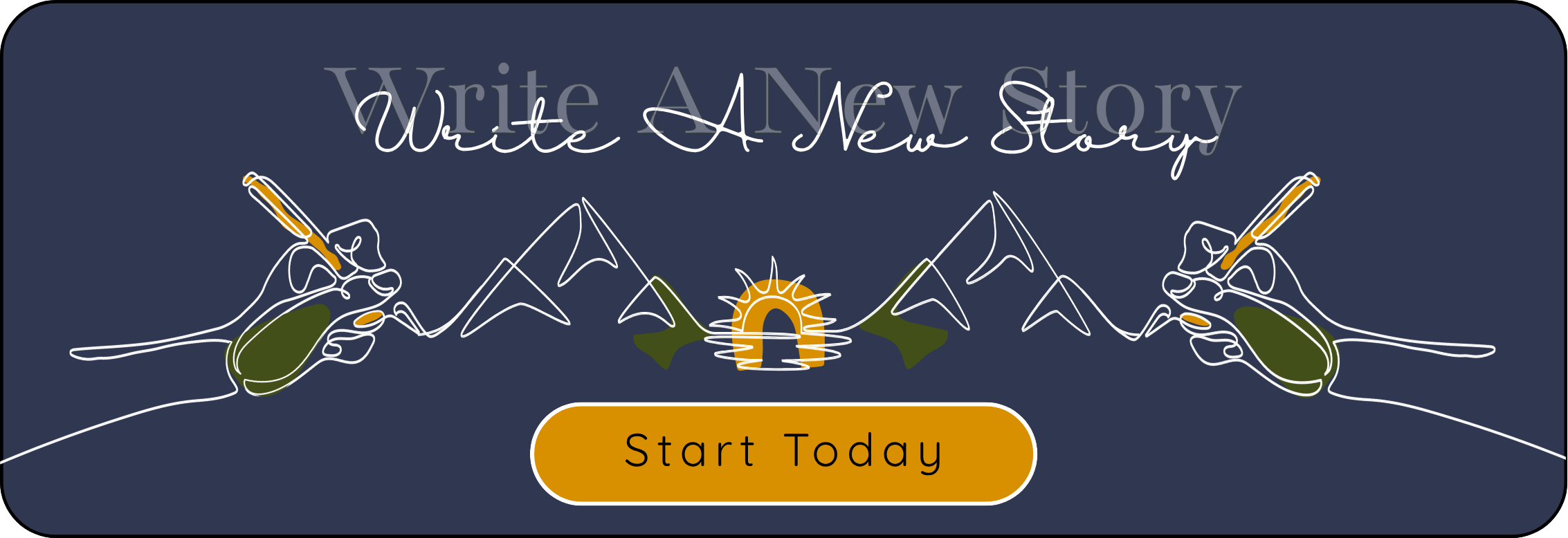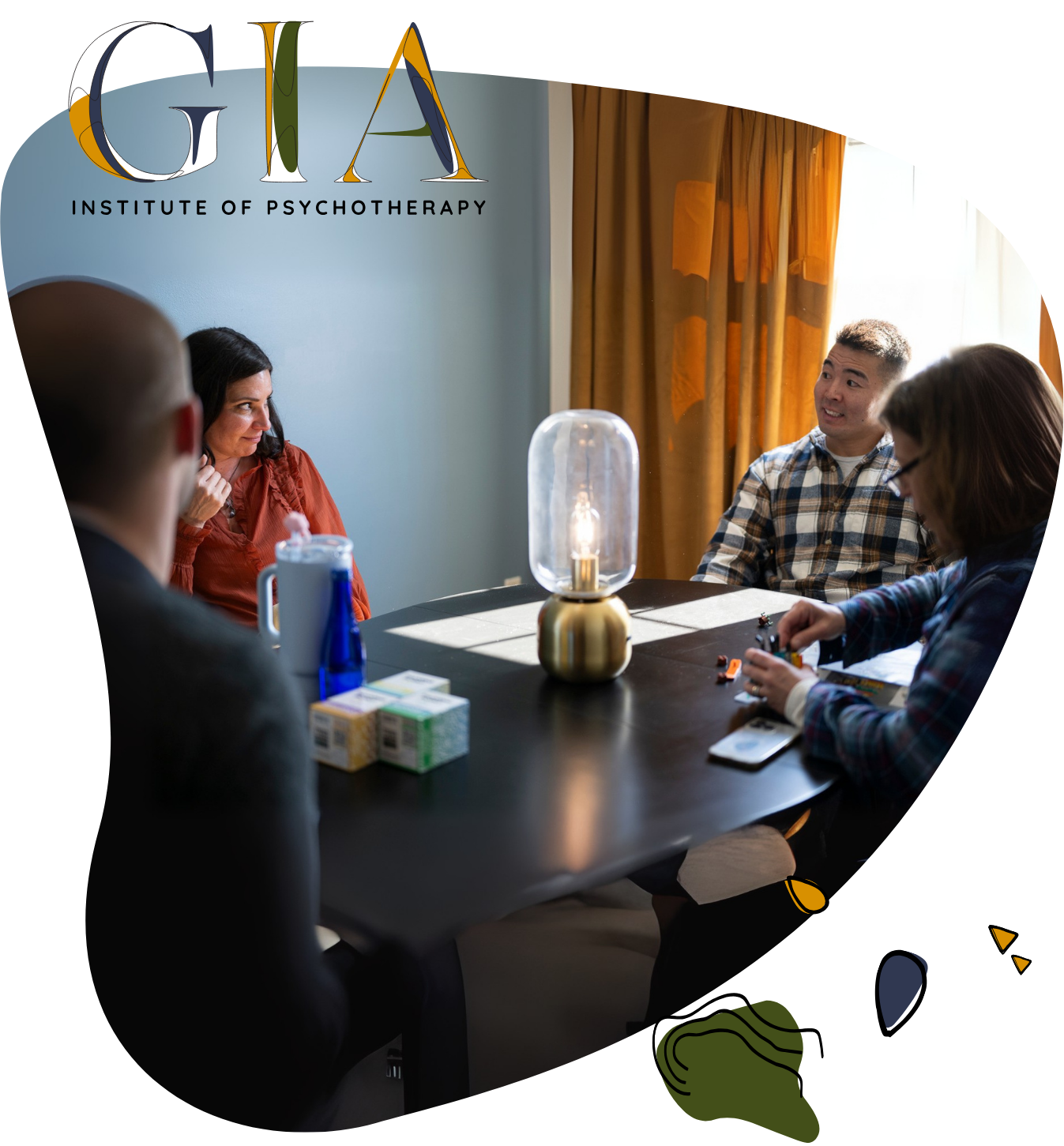When Independence Becomes Isolation
We live in a culture that praises boundaries and independence, but somewhere along the way, “going no contact” became confused with emotional strength.
“Going no contact” is a conscious, deliberate decision to cut off all communication and contact with a person who is genuinely toxic or unsafe: an abusive ex, a parent who causes harm, an addicted sibling steals from you and refuses help.
In those situations, going no contact is more than just ghosting someone. It’s not just avoidance or immaturity —it’s protection. It creates distance so you can heal.
But what happens when “going no contact” becomes a pattern?
When relational ruptures frequently end the same way? When friendships, family relationships, or romantic partnerships repeatedly fall apart? When they don’t end with repair, conversation, or clarity—but with silence? When emotional discomfort feels intolerable, and distance becomes the default response to conflict or vulnerability?
When people are cut off, not because they’re dangerous, but because situations become difficult or painful?
And what about the stories we tell ourselves along the way? When the narrative starts to sound oddly familiar—you as the wounded party, the other as the villain? Or when people seem to keep walking away from you?
At that point, it’s worth asking: Am I truly setting boundaries— or avoiding the work relationships take?
These questions aren’t meant to shame. They’re meant to interrupt a pattern.
At first glance, cutting someone off can look like strength. It can even feel like a relief—no guilt, no regrets, just a clean break — in fact, you feel better without them. But beneath that relief often lies something much deeper: an inability to navigate the complexities of human relationships.
When “no contact” becomes the default response to relational strain, it may say less about the people being cut off—and more about what we haven’t yet learned to tolerate, communicate, or repair.
True strength isn’t in severing ties with people when there is conflict; it’s in learning to sit with discomfort, communicate, repair, and grow within the context of relationships, instead of running from them.
When Going No-Contact Becomes a Pattern
If you find you have cut off more than one person in your life, it might be time to ask: Is the problem always them, or is something in me preventing a deeper connection?
Here’s what a chronic pattern of cutting people off can signal:
Avoidance of Conflict
This can be a learned response to relational chaos. Relationships require work, and disagreements are part of the process. If every conflict ends in a breakup— whether romantic or platonic—it suggests difficulty in resolving issues.
Anger
It’s not just unresolved anger, but a deep fear of vulnerability—fear of needing someone who might let you down. Cutting people off can be a way of protecting yourself from being hurt. It can be a defense against feeling powerless, and an attempt to reclaim control. If you end things first or refuse to fight for the relationship, you maintain control.
But control is not connection.
Cycles of Abuse
Another fallout of this learned response is a painful cycle of abuse. Somewhere along the way, you may have internalized the idea that there are only two positions in a relationship: abused or abusive. When vulnerability feels unbearable—do you flip the script and become the one who cuts, withdraws, or punishes? Does the person who hurt you deserve exile—or is the silence itself a form of retaliation that repeats the very dynamic of abuse you were trying to escape?
Unrealistic Expectations
If you expect people to always meet your needs perfectly and cut them out of your life when they don’t, you may be operating from an all-or-nothing mindset. No one is perfect. Healthy relationships require grace.
A False Sense of Strength
It can feel empowering to walk away without regret, but true emotional strength isn’t about never feeling pain—it’s about allowing yourself to feel, to process, and to learn from those emotions.
Loneliness in Disguise
You might feel fine in your solitude, but if no one stays in your life long enough to build deep intimacy, what is really being protected?
The Danger of Disguised Independence
In today’s culture, rigid boundaries are often mistaken for emotional health. But real independence isn’t about needing no one—it’s about being able to connect without losing yourself. If your version of independence means isolation, emotional walls, or an inability to maintain relationships, it may be time to reconsider what you’re calling strength.
Of course, there are situations where “going no contact” is the best choice—abusive relationships and repeated betrayals don’t deserve unlimited chances. But if you’ve been unable to sustain deep, lasting relationship, and if adult bonds lead to distance, the common denominator isn’t just the people you’re cutting off—it’s you.
If this is your story, I’ll ask you this one final question:
What has each cutoff protected you from — and what has it cost you?
Breaking the Pattern
If you recognize this pattern in yourself, don’t shame yourself for it. Instead, consider:
Learning Repair Strategies
Disagreements don’t have to mean the end. Practice resolving conflict instead of avoiding it.
Allowing Discomfort
Not every uncomfortable feeling is a sign to leave. Sometimes, it’s a sign to grow.
Exploring Your Own Defenses
Are you protecting yourself from real harm, or from the vulnerability that deep relationships require?
Seeking Help
Therapy can help uncover why you struggle to maintain connections and teach you healthier relationship patterns.
The Bottom Line
There is a difference between setting boundaries and building walls. One protects you while allowing connection; the other isolates you under the illusion of strength. If you find yourself cutting people off, feeling relief instead of grief, or struggling to keep people from walking away, it’s time to look inward. Independence should never come at the cost of meaningful connection.
When You’re the One Left with “No Contact”
There’s another side to this story—the person who’s left standing in the wreckage of someone who went “No Contact” in the absence of abuse, leaving you to absorb the emotional impact of a decision you had no say in.
When a relationship ends abruptly, without conversation or closure, it leaves behind an ache that’s hard to name. One day, you felt seen, known, and chosen. The next day, you’re deleted, toxic, and disposable.
You replay everything, searching for the moment things turned from connection to cutoff. You question your worth, your memory, your reality. That confusion and that haunting need to understand is what rupture without repair or closure does, and it leaves confusion, shame, and a longing to understand. You're grieving not just a person, but a narrative that allows you to move on.
You Might Find Yourself:
Obsessively replaying conversations, looking for clues.
Struggling to trust new people, waiting for the next disappearance.
Wondering why you can’t move on.
Feeling angry one minute, desperate the next.
Trying to “understand” to make sense of your pain.
Feeling haunted by the lack of repair, or the ability to “make it right.”
Blaming yourself, questioning whether you are “toxic,” or just human and imperfect.
Making Your Way Back from Abandonment
You can’t think your way into closure. Their silence says more about their capacity than your worth.
Instead, try to:
Name What Happened: You experienced relational trauma—an attachment rupture with no repair. Naming it helps restore dignity to your pain.
Let Yourself Grieve: Even if others don’t understand, your sadness is valid. This wasn’t just a friendship or relationship ending—it was the sudden death of mutual recognition.
Stop Trying to Understand Why: You can’t logic your way into closure. Their silence says more about their capacity than your worth.
Remember: You mattered. You deserved a conversation. You are worth relationships that can hold hard things.
Seek Help: Therapy can help cope with the loss and understand your own wounds and patterns - it’s an opportunity for growth.
Your work now is to keep your heart open—to keep believing in repair, even after rupture.
As relational therapists, we believe that working with a therapist who “gets” you - one who you trust can help you - is the foundation for successful therapy. To ensure the best possible match, we'll schedule a consultation to discuss your specific needs and preferences. We'll consider your cultural background and identity, your goals, and your financial situation to help connect you with a therapist who is right for you.
For in-person sessions in South Jersey, our office is located in downtown Somers Point, NJ. For your convenience, we also offer online sessions for anyone in New Jersey.







